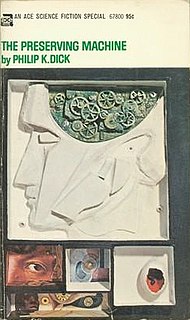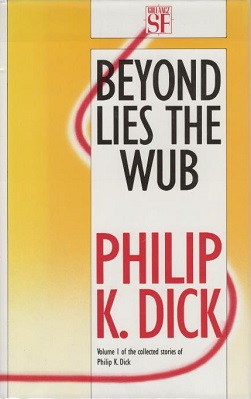
Epicurus was an ancient Greek philosopher who founded a highly influential school of philosophy now called Epicureanism. He was born on the Greek island of Samos to Athenian parents. Influenced by Democritus, Aristotle, and possibly the Cynics, he turned against the Platonism of his day and established his own school, known as "the Garden", in Athens. He and his followers were known for eating simple meals and discussing a wide range of philosophical subjects, and he openly allowed women to join the school as a matter of policy. An extremely prolific writer, he is said to have originally written over 300 works on various subjects, but the vast majority of these writings have been lost. Only three letters written by him—the Letters to Menoeceus, Pythocles, and Herodotus—and two collections of quotes—the Principle Doctrines and the Vatican Sayings—have survived intact, along with a few fragments and quotations of his other writings. His teachings are better recorded in the writings of later authors, including the Roman poet Lucretius, the philosopher Philodemus, the philosopher Sextus Empiricus, and the biographer Diogenes Laërtius.

De rerum natura is a first-century BC didactic poem by the Roman poet and philosopher Lucretius with the goal of explaining Epicurean philosophy to a Roman audience. The poem, written in some 7 400 dactylic hexameters, is divided into six untitled books, and explores Epicurean physics through poetic language and metaphors. Namely, Lucretius explores the principles of atomism; the nature of the mind and soul; explanations of sensation and thought; the development of the world and its phenomena; and explains a variety of celestial and terrestrial phenomena. The universe described in the poem operates according to these physical principles, guided by fortuna ("chance"), and not the divine intervention of the traditional Roman deities.

The bibliography of Philip K. Dick includes 44 novels, 121 short stories, and 14 short story collections published by American science fiction author Philip K. Dick during his lifetime.

The Preserving Machine is a collection of science fiction stories by American writer Philip K. Dick. It was first published by Ace Books in 1969 with cover art by Leo and Diane Dillon as part of their Ace Science Fiction Specials series. The stories had originally appeared in the magazines Fantasy and Science Fiction, Galaxy Science Fiction, Beyond Fantasy Fiction, If, Amazing Stories, Planet Stories, Worlds of Tomorrow, Imagination and Satellite.

The Collected Stories of Philip K. Dick is a collection of 118 science fiction stories by American writer Philip K. Dick. It was first published by Underwood-Miller in 1987 as a five volume set. See Philip K. Dick bibliography for information about the mass market reprints.

Beyond Lies the Wub is a collection of science fiction stories by American writer Philip K. Dick. It was first published by Gollancz in 1988 and reprints Volume I of The Collected Stories of Philip K. Dick. Many of the stories had originally appeared in the magazines Fantasy and Science Fiction, Planet Stories, If, Galaxy Science Fiction, Imagination, Space Science Fiction, Fantastic Story Magazine, Amazing Stories, Future, Cosmos, Fantasy Fiction, Beyond Fantasy Fiction, Thrilling Wonder Stories and Startling Stories. The collection was reprinted by Citadel Press in 2003 under the title Paycheck and Other Classic Stories.

The Short Happy Life of the Brown Oxford is a collection of science fiction stories by American writer Philip K. Dick. It was first published by Citadel Twilight in 1990 and reprints Volume I of The Collected Stories of Philip K. Dick. Many of the stories had originally appeared in the magazines Fantasy and Science Fiction, Planet Stories, If, Galaxy Science Fiction, Imagination, Space Science Fiction, Fantastic Story Magazine, Amazing Stories, Future, Cosmos, Fantasy Fiction, Beyond Fantasy Fiction, Thrilling Wonder Stories and Startling Stories. The collection was reprinted by Citadel Press in 2003 under the title Paycheck and Other Classic Stories.

Selected Stories of Philip K. Dick is a collection of science fiction stories by Philip K. Dick. It was first published by Random House in 2002. Many of the stories had originally appeared in the magazines Planet Stories, Fantasy and Science Fiction, Imagination, Space Science Fiction, Astounding, Beyond Fantasy Fiction, Orbit, Galaxy Science Fiction, Fantastic Universe, Amazing Stories, Rolling Stone College Papers, Omni and Playboy.
"Meddler" is a science fiction short story by American writer Philip K. Dick. It was first published in Future Science Fiction, October 1954 with illustration by Virgil Finlay. Dick had submitted many short stories to magazines and made approximately fifteen sales before becoming a client of the Scott Meredith Literary Agency. This was his second SMLA submission, received by SMLA on July 24, 1952. His first SMLA submission was The Builder, received by SMLA on July 23, 1952.
"The Little Movement" is a fantasy short story by American writer Philip K. Dick, first published in 1952 in The Magazine of Fantasy & Science Fiction, and later in The Collected Stories of Philip K. Dick. It has since been republished several times, including in Beyond Lies the Wub in 1988, and in 2003 in Paycheck.

For the collection of short stories by Philip K. Dick, see Beyond Lies the Wub (collection).

"The Skull" is a science fiction short story by American writer Philip K. Dick, first published in 1952 in If, and later in The Collected Stories of Philip K. Dick. It has since been republished several times, including in Beyond Lies the Wub in 1988.

"Piper in the Woods" is a science fiction short story by American writer Philip K. Dick, first published in 1953 in Imagination, and later in The Collected Stories of Philip K. Dick. It has since been republished several times, including in Beyond Lies the Wub in 1988.
"The Short Happy Life of the Brown Oxford" is a science fiction short story by American writer Philip K. Dick, first published in the January, 1954 edition of The Magazine of Fantasy & Science Fiction and later in Beyond Lies the Wub in 1984 and in The Short Happy Life of the Brown Oxford, a collection of Philip K. Dick short stories, in 1990.
"The Great C" is a science fiction short story by American writer Philip K. Dick. It was first published in 1953 in Cosmos Science Fiction and later in The Collected Stories of Philip K. Dick, and parts of the work along with Planet for Transients were later used in the full-length novel Deus Irae. It has since been republished several times, including in Beyond Lies the Wub in 1988.
"Out In The Garden" is a science fiction short story by American writer Philip K. Dick, first published in 1953 in the magazine Fantasy Fiction. It has since been republished several times, including in the collections Beyond Lies the Wub in 1988.
"Nanny" is a science fiction short story by American writer Philip K. Dick, first published in 1955 in Startling Stories and later in The Collected Stories of Philip K. Dick. It has since been republished several times, including in Beyond Lies the Wub in 1988.

Alpha 3 is an anthology of science fiction short works edited by Robert Silverberg. It was first published in paperback by Ballantine Books in October 1972.














